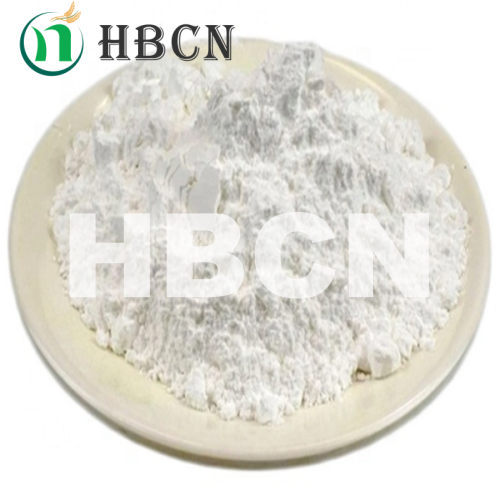
Oct . 21, 2024 11:47 Back to list
Natural Insecticides for Sustainable Pest Control in Organic Agriculture
Understanding Organic Insecticides A Sustainable Approach to Pest Management
In recent years, the growing awareness of environmental issues and the effects of synthetic chemicals on human health and ecosystems has led to an increased interest in organic farming practices. One crucial aspect of organic agriculture is the management of pests, which can threaten crop yields and plant health. Organic insecticides emerge as a critical solution in this context, offering effective pest control while adhering to organic farming principles.
What Are Organic Insecticides?
Organic insecticides are derived from natural sources, including plants, minerals, and microorganisms, and are used to control pest populations in crops without the harmful side effects associated with synthetic chemicals. They play a significant role in integrated pest management (IPM), a holistic approach that combines biological, cultural, physical, and chemical tools to manage pests in an environmentally sound way.
Types of Organic Insecticides
There are several types of organic insecticides, each with unique properties and modes of action. Some of the most common categories include
1. Botanical Insecticides These are derived directly from plants and typically include substances like neem oil, pyrethrin, and diatomaceous earth. Neem oil, extracted from the seeds of the neem tree, disrupts the life cycle of insects and has repellent qualities. Pyrethrins, derived from chrysanthemum flowers, act quickly to paralyze and kill insects but are less harmful to beneficial insects when used responsibly.
2. Microbial Insecticides This category includes insecticides derived from naturally occurring microorganisms. For instance, Bacillus thuringiensis (Bt) is a bacterium that produces toxins harmful to specific insect larvae such as caterpillars, making it an effective organic solution for crops susceptible to those pests.
3. Mineral-based Insecticides Some organic insecticides are made from natural minerals, such as neem and kaolin clay. Kaolin clay can serve as a barrier to pest insects, while also protecting plants from environmental stresses.
4. Essential Oils Many essential oils, such as peppermint, rosemary, and clove oil, possess insecticidal properties. They can deter insects through their strong scents or cause physiological effects that inhibit pest populations.
Benefits of Using Organic Insecticides
organic insecticides

The adoption of organic insecticides confers several advantages, both for farmers and the environment
1. Reduced Environmental Impact Organic insecticides generally have a lower environmental impact compared to their synthetic counterparts. They break down more quickly in the environment and are less likely to contaminate soil and water sources.
2. Safety for Non-target Organisms Many organic insecticides have lower toxicity levels for beneficial insects, wildlife, and humans. This safety margin is especially crucial in sustaining biodiversity on farms.
3. Sustainable Farming Practices The use of organic insecticides supports sustainable agriculture practices by promoting soil health, reducing chemical dependency, and encouraging eco-friendly pest management strategies.
4. Consumer Appeal With an increasing number of consumers prioritizing organic products, using organic insecticides can enhance marketability and appeal to health-conscious buyers who prefer food free from synthetic pesticide residues.
Challenges and Considerations
While organic insecticides offer numerous benefits, some challenges are associated with their use. The efficacy of organic products can sometimes be lower than synthetics, requiring careful timing and application to ensure effectiveness. Moreover, organic insecticides may have a shorter residual activity, necessitating multiple applications and more precise pest monitoring.
Farmers must also consider the specific pest pressures and choose the right organic insecticide accordingly. Integrated pest management strategies, including crop rotation, biological control, and habitat manipulation, should be implemented alongside the use of organic insecticides to enhance overall effectiveness and sustainability.
Conclusion
Organic insecticides represent a vital component of sustainable pest management in agriculture. By harnessing the power of nature, these environmentally friendly products provide effective pest control while minimizing negative impacts on health and ecosystems. As more farmers embrace organic practices, the continued innovation and development of organic insecticides will play a crucial role in ensuring food security and protecting the planet for future generations. Adopting such practices not only benefits growers economically but also encourages a healthier environment for all living organisms.
-
Insecticide Spirotetramat 11% + Thiacloprid 11% SC at Good Price
NewsJul.30,2025
-
Best Abamectin SDS - Premium Quality & Reliable Safety Data
NewsJul.29,2025
-
Agrochemicals Pesticides Solutions for Sustainable Farming
NewsJul.29,2025
-
High-Quality Tebuconazole Fungicide for Crop Protection at Best Price
NewsJul.29,2025
-
Chlorfenapyr 8% + Clothianidin 20%SC Pesticide Mixture for Effective Pest Control
NewsJul.28,2025
-
Best Azoxystrobin Difenoconazole Supplier for Crop Protection
NewsJul.28,2025
